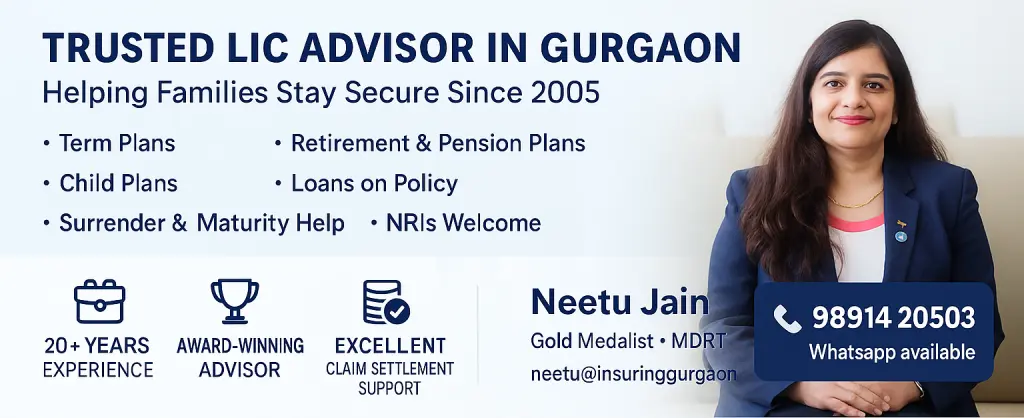Understanding the LIC Agent Commission Structure: Rates, Rules, Payment, and More
As an LIC Agent, your income is primarily based on the commissions you earn from selling various insurance policies. To maximize your earnings and plan your career growth effectively, it’s important to understand the LIC Agent Commission Structure, including commission rates, rules, payment, and more.
LIC Agent Commission Rates
Commission rates for LIC agents can vary based on several factors, including the type of policy, premium amount, sum assured, and duration of the policy. Traditional endowment policies typically offer higher commission rates than term insurance policies, and policies with a higher sum assured or longer-term usually have higher commission rates. The commission rates may also differ based on whether the policy is an individual policy or a group policy.
Experienced agents who have completed advanced training programs may be eligible for higher commission rates, and agents who consistently meet or exceed their sales targets may be eligible for bonus commission payments.
LIC Agent Commission Rules
To be eligible for commission payments, an LIC Agent must hold a valid license and comply with the rules and regulations of LIC. Commission payments are typically made on a quarterly basis, and the agent must meet certain targets to receive the commission. These targets may include minimum sales volume, policy renewals, and collections.
The LIC Agent Commission Rules also cover the recovery process in case there are any discrepancies in commission payments. The agent can file a claim for recovery if the commission payment is delayed, underpaid, or not paid. The claim process may involve submitting supporting documents, such as policy documents, receipts, and communication records.
LIC Agent Commission Payment
The LIC Agent Commission Payment process involves several steps, starting from the calculation of commission payable to the agent to the actual disbursement of the commission. The commission payable to the agent is calculated based on the commission rates, policy type, premium amount, and other factors. The commission payments are subject to TDS (Tax Deducted at Source) and other applicable charges.
The commission payments are usually made through electronic transfer to the agent’s bank account. The agent can also receive an advance payment of commission based on the expected sales for the upcoming quarter. The commission payments are subject to taxation, and the agent must file their tax returns accordingly.
LIC Agent Commission Structure
The LIC Agent Commission Structure consists of several components, including commission rates, renewal commission, bonus commission, and persistency bonus. The commission rates are paid for the policies sold by the agent, and the rates may vary based on the factors discussed earlier.
Renewal commission is paid for policies that are renewed after the initial term, and the commission is typically a percentage of the premium paid for the renewal. Bonus commission is paid based on the agent’s performance, such as meeting or exceeding sales targets, achieving high persistency rates, and promoting new products. The persistency bonus is paid for policies that are retained by the policyholder for a specific period, and the bonus amount may increase with the length of the retention period.
Understanding the LIC Agent Commission Structure is crucial to building a successful career as an LIC Agent. By knowing the commission rates, rules, payment process, and structure, you can make informed decisions and take steps to maximize your earnings. Don’t hesitate to seek guidance from your supervising authorities or professional mentors if you have any doubts or questions.
Short story – Ram is earning extra income every month by working amongst his friends and family
Ram was a hardworking man who held a steady job but found it difficult to make ends meet due to the rising cost of living. He often wondered if there was a way to supplement his income without having to quit his current job.
One day, he came across an opportunity to become an LIC agent. He was intrigued by the idea of earning extra income by working just part-time and without disturbing his current job.
He went through the necessary training and certification process and started promoting LIC policies to his friends, family, and acquaintances. With his friendly and approachable demeanor, he found it easy to convince people to invest in LIC policies that suited their needs.
Over time, Ram built a strong network of clients who trusted him and relied on him for their insurance needs. His commissions from selling LIC policies started to add up, and he realized that he could significantly improve his financial stability with just a few hours of work each week.
Ram’s LIC agency income helped him pay off his debts, save for his children’s education, and invest in his retirement plans. He was proud of the fact that he could achieve financial stability without compromising on his current job or family responsibilities.
Ram’s story is a testament to the fact that with the right mindset and effort, anyone can improve their financial situation. Becoming an LIC agent is an excellent way to earn extra income and secure your financial future, and Ram’s experience is proof that it can be done with minimal effort and maximum returns.

